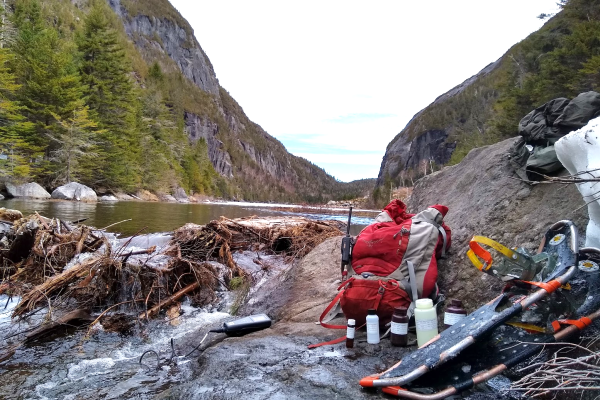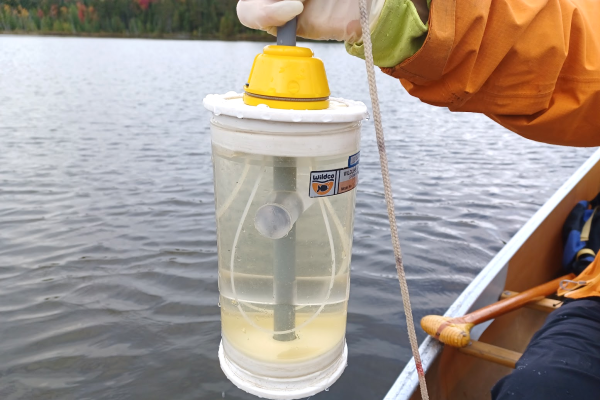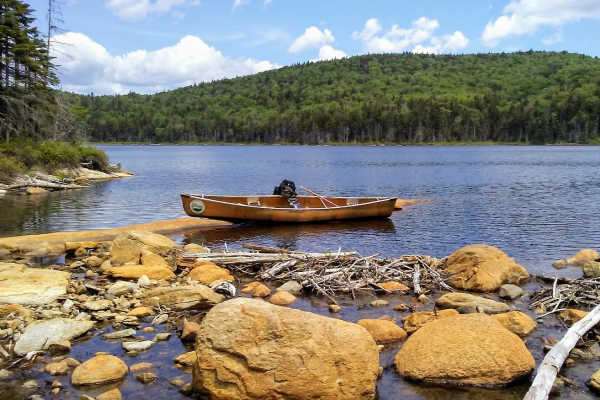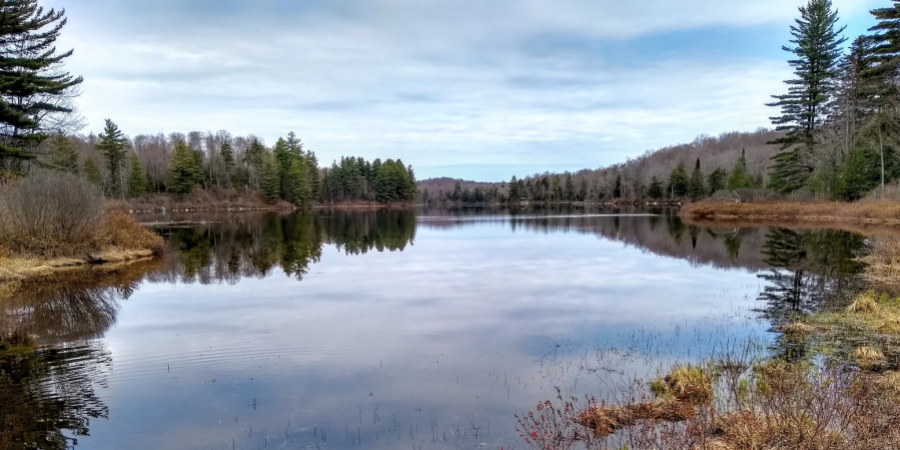Beginning in the spring of 2023, multiple research partners are coming together to focus their skills and talent to document and understand the impacts of climate change on freshwater ecosystems. Over the next 18 months, AsRA will participate in the pilot program for the research-consortium based Survey of Climate Change in Adirondack Lake Ecosystems (SCALE). SCALE is a collaborative scientific undertaking with the goal of collecting and interpreting a broad range of physical, chemical, and biological data across aquatic Adirondack ecosystems. To better understand the need for and the origins of SCALE, it is helpful to recall a prior study which has helped to shape environmental research and policy around the Adirondack region.
Despite the many protections afforded to the Adirondack Park, threats originating from outside the Blue Line have long played a role in the ecosystems of its landscape and waters. Acid deposition hit the region particularly hard for much of the last half of the 20th century, leading to the loss of crucial habitat for aquatic sentinel species such as brook trout. Realizing that acid deposition was having a tangible, lasting impact on the environment and the livelihoods of those who live and recreate in the Adirondacks, a collaboration of governmental and academic institutions proposed the Adirondack Lakes Survey (ALS). The ALS was a large-scale, comprehensive study undertaken in the mid-1980's to better characterize the chemical and biological status of Adirondack lakes and the effects acid deposition was having on the aquatic ecosystems in the region. This study produced one of the most comprehensive environmental data sets of its time and the scientific knowledge acquired from that survey led to long-term monitoring programs that would shape and track the progress to curb acid emissions. While sensitive lakes and streams are recovering thanks to reductions in the emissions of sulfate and nitrate and favorable conditions are beginning to be restored, a new threat is emerging in the form of climate change.

Backcountry sampling of water quality.
To identify and address the impacts of a changing climate, researchers have once again proposed a research-based consortium and a large-scale study, this time with the goal of better characterizing the effects of climate change on the Adirondack region’s inland lakes. SCALE, like the ALS, will employ the philosophy of using scientific understanding to shape policy. Building on the insights gained from the 1980’s ALS, incorporating the latest technology along with a better understanding of chemical and biological relationships, SCALE will attempt to establish a new ecological baseline for Adirondack lakes and try to answer several crucial questions that will help shape management and mitigation practices in the face of a changing climate. In 2022, AsRA received $500,000 through the State Aid to Localities program dedicated by the New York State Legislature to pursue the pilot of SCALE. This allowed multiple academic research partners, each with their own expertise, to join and develop methods and techniques that will be used as a part of the larger survey. With AsRA serving as the SCALE pilot project coordinator and field research manager, its staff, along with researchers from Cornell University, Rensselaer Polytechnic Institute (RPI), City University of New York Graduate Center (CUNY), and Syracuse University, will lay the groundwork for the multiyear study. The pilot's goals are to (1) identify target lakes for SCALE through mining of historic data sets (RPI), (2) develop and field test cutting-edge tools and methods for gathering field data, including novel environmental DNA quantification tools and the analysis of stable isotopes in food webs (Cornell), (3) examine changing dissolved organic matter trends (Syracuse), and (4) use satellite remote sensing to map and model physical and chemical lake attributes (CUNY). To achieve these goals, AsRA will be contributing its expertise in field research and planning to ensure the quality of data collection in the sometimes-challenging environment of the Adirondacks.

Sampling water at varying depths to see differences in water quality in a lake.
The vision for the pilot project, along with the design of the larger study and the defining scientific questions, are outlined in the document, Planning for SCALE: A Survey of Climate Change and Adirondack Lake Ecosystems, sponsored by NYSERDA and co-prepared by Drs. Kevin Rose (RPI) and Peter McIntyre (Cornell University). This planning document details how the systematic assessment will reveal the extent of climate change on habitat quality, climate-sensitive species distributions, carbon accounting, and harmful algal blooms. While these threats present challenges to the long-term health of the waters of the Adirondacks and beyond, each one is responsive to management practices that can minimize impact when informed by strong data.
Many of the lakes that will be part of the pilot SCALE study, as well as the larger survey to follow, are those that were part of the original ALS and the subsequent Adirondack Long-Term Monitoring program, which highlights the vital importance of these historic data records as environmental conditions change and scientific understanding advances. Data that was collected four decades ago with the focus of studying acid deposition can now play a crucial role in helping to understand a changing climate. The analysis of data generated from SCALE can have a similar impact. SCALE will not only increase our awareness of how the climate is impacting the Adirondacks today but will also inform our resource management and science a generation from now. We look forward to sharing the results of this year’s work with you and are working to secure additional funding to keep the project moving forward.

Looking forward to collecting samples in the field on days like this.
Story by Phil Snyder, Water Quality Research Manager.
Sign-up for our e-newsletter to get weekly updates on the latest stories from the Ausable River Association.

